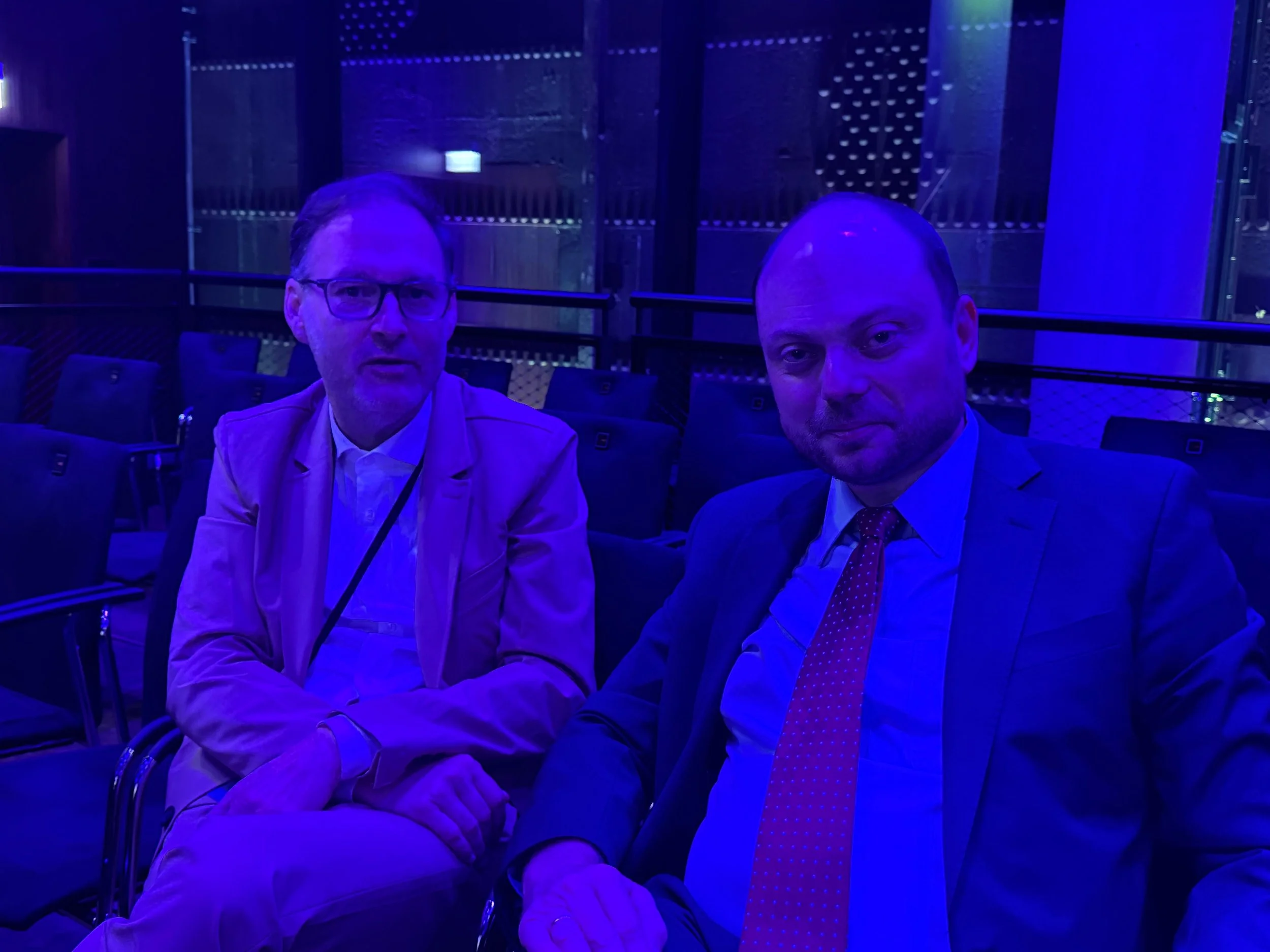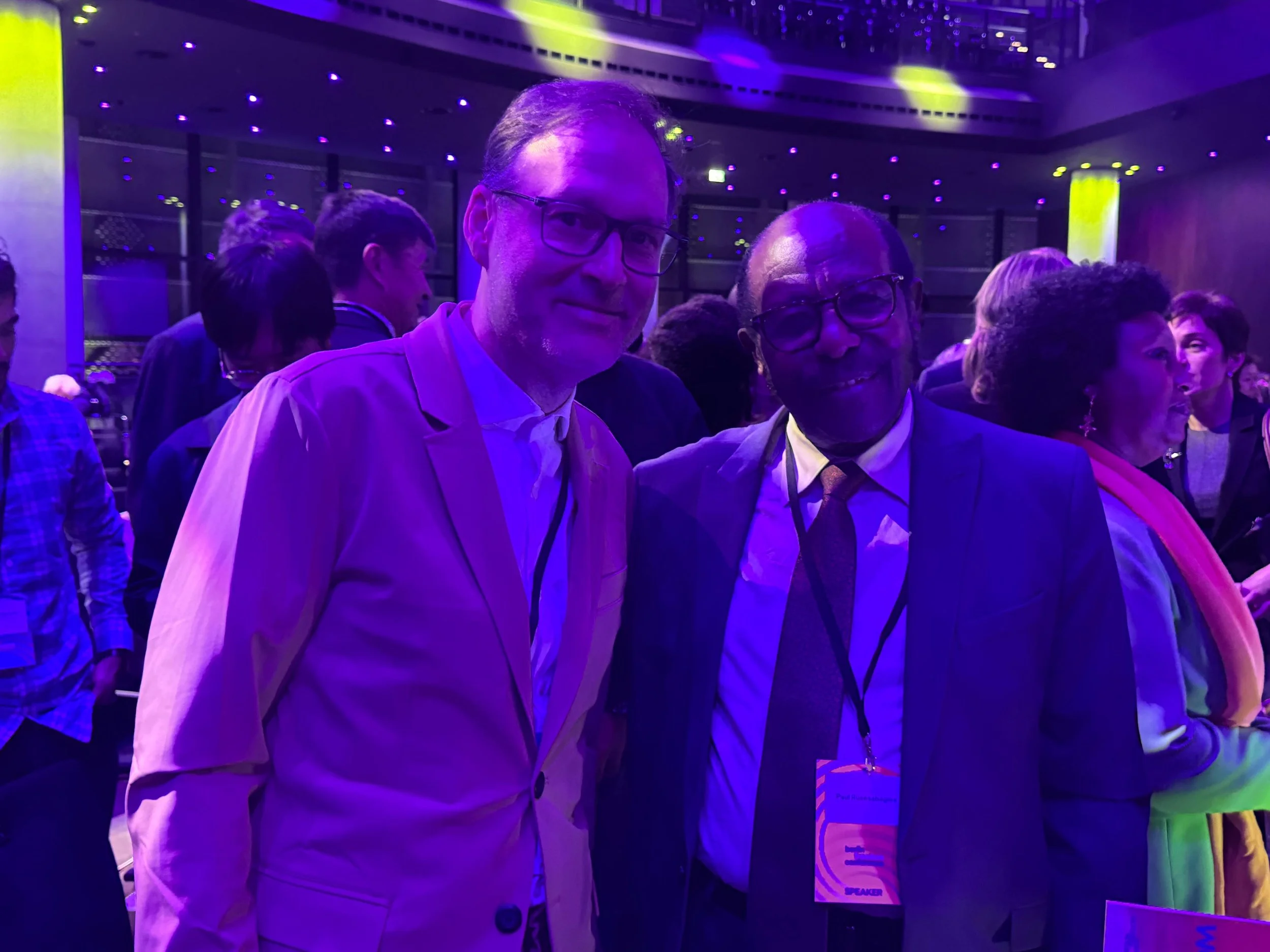Berlin Freedom Week
Venezuela: González Prepares to Replace Maduro
"A La Calle", directed by Maxx Caicedo and Nelson G. Navarrete, chronicles protests of Venezuelans against Nicolás Maduro's authoritarian regime.
BERLIN – At the Berlin Freedom Week, launched for the first time and coinciding with the 36th anniversary of the Berlin Wall's fall on November 9, 1989, Venezuelan president-elect Edmundo González Urrutia was announced by exiled opposition leader Leopoldo López, to outline a roadmap for ousting Nicolás Maduro's beleaguered regime. With international eyes fixed on Venezuela's protracted crisis marked by disputed 2024 elections, rampant hyperinflation, and over 7 million refugees, González, who claims a landslide victory in the July vote amid fraud allegations, signaled his readiness to spearhead a democratic handover.
In a charged exchange moderated by López, the former political prisoner posed a pivotal question: "Are you prepared to assume the responsibility to lead the Democratic transition in Venezuela?" González responded with measured resolve: "Surely I will. It is not a case that I am going to do it myself. We have a team of a lot of people who follow us, a group of technicians who have prepared a detailed program, and we are going to work on it since the first day of the transition of power. We are going to work for the Venezuelans and we are going to fight for a decent government and respect for human rights."
His words underscored a collective strategy, drawing on a coalition of exiles, civil society, and international allies to dismantle Maduro's grip, which has endured through U.S. sanctions, EU condemnations, and UN human rights probes documenting extrajudicial killings and arbitrary detentions. González then pivoted to a stirring address, invoking the venue's symbolism: "We feel profoundly supported by so many brothers and sisters of freedom who gather here in Berlin. Venezuelans know that freedom is not a gift. It's a conquest that must be renewed every single day. We have resisted authoritarianism, repression, and the misery imposed by a regime that sought to enslave our conscience. But we have also learned that international solidarity—the voices that refuse to remain silent and faith in justice—can sustain a people in their darkest hour. This is why this gathering in Berlin carries such deep meaning. Here where one wall fell, we reaffirm our conviction that modern walls of disinformation, fear, and indifference cannot stand. To those who fight today anywhere in the world to speak, to vote, to think freely, I say: Venezuela understands you and stands with you. Our victory will also be yours, for we carry forward freedom, strengthened by free people.” The address, met with applause, wove Venezuela's plight into the event's tapestry of global defiance, as López nodded in solidarity, their partnership evoking a beacon for dissidents from Moscow to Taipei.
Nobel Peace Prize laureate Maria Corina Machado has sent a video message from an undisclosed location inside Venezuela, where she has been living in hiding for more than 15 months: "Our enemies cooperate, they share their money, their guns, their propaganda, so we must also cooperate. We must share our courage, our knowledge, and our devotion to freedom. They build prisons; we build hope. They spread fear; we spread truth, and in the end, truth always wins. From where I am, I want to tell you this: freedom is not something we wait for; it's something we become every time we refuse to give in. So do not lose heart. Do not give up. Our time has not passed, our time is now more than ever. We are the living proof that dictatorships can oppress, but they cannot conquer the human spirit. And together, women and men from every nation under tyranny, we will bring them down." she concluded.
Taiwan's former President Tsai Ing-wen addressed the conference on building democratic resilience against authoritarian pressures, emphasising collective security: "Resilience comes in many forms, from individual to collective, from economic to security; it is crucial that we deepen security cooperation between democracies. A critical step in this direction will be to develop communications and information sharing mechanisms. A united democratic response will be much more difficult to break down for the authoritarians. Here, Taiwan has much to contribute… Our high-tech sector, particularly in semiconductors, has become an indispensable part of the global economy. In the age where AI also defines power, Taiwan’s chip industry anchors global prosperity."
Former president of the Tibetan government in exile, Lobsang Sangay, urged exiles to build democratic structures abroad to ensure lasting change at home, warning: "If you don’t create a democratic government in exile, one dictator follows another." Drawing on failures in Tunisia, Egypt, Libya, and elsewhere where ousted regimes resurfaced, he stressed that "who you are in exile, you become back home," citing the Tibetan model—with its vibrant parliament and ministries—as a blueprint for practicing governance amid challenges like internal divisions, infiltration, and ideological rifts with those suffering under dictatorships. Successes like the Spanish and Polish exile governments, he noted, show that organised, democratic exiles can restore freedom upon return.
Russian opposition leader Vladimir Kara-Murza delivered a harrowing account: "Every day five more people are indicted on politically motivated charges. We have more than 1,750 known-by-name political prisoners. The fact is that Russia holds more political prisoners than the whole Soviet Union, and the leading prisoners are protesters against the war in Ukraine," before concluding, "The best of Russia is in prisons."
Paul Rusesabagina, the Rwandan humanitarian famed for sheltering 1,268 lives during the 1994 genocide and imprisoned himself for six years, exposed his homeland's shadows: "There are 300,000 prisoners in Rwanda; in the prison where I was held, there were 18,500 prisoners. All of those prisoners have got no accusation; they are just kept there, and most of them are dying from hunger. Rwanda prisons are like hell," he concluded.
Sebastien Lai, son of imprisoned Hong Kong pro-democracy publisher Jimmy Lai, added a heartrending plea about his father's five years in a maximum-security cell: "Although he is in ill health, my father is still fighting. He said during the exchange with judges: 'The truth will come out of the kingdom of God, and that is good enough for me.' But that is not enough for us... My father must be freed." Jimmy Lai has become a global symbol of press freedom's erosion under Beijing's national security laws, facing potential life imprisonment for his unyielding advocacy against authoritarian overreach.
These testimonies amplified the global urgency of resisting authoritarianism, echoed by Bundestag President Julia Klöckner, stating that only 21 percent of Germans still trust the parliament, a trust deficit mirroring erosions elsewhere under populist strains. She pledged to remind all sceptics of democracy: "The purpose of democracy is freedom.“ Without pluralism, there is no freedom.
Former president of the Tibetan government in exile Lobsang Sangay
Russian opposition leader Vladimir Kara-Murza
Taiwan's former President Tsai Ing-wen
Vladimir Kara-Murza and Jaka Bizilj in Berlin, where The World Forum had initiated the break-through for his prisoner exchange in 2024.
Paul Rusesabagina, the hotel manager who saved more than 1200 people from genocide in Rwanda and was later kidnapped and imprisoned, in freedom again. Cinema for Peace honoured the film "Hotel Rwanda“ with actor Don Cheadle as The Most Valuable Film of The Year in 2005.
"Hotel Rwanda", directed by Terry George, portrays the true story of Paul Rusesabagina, a Hutu hotel manager who sheltered over 1,200 Tutsi refugees and others during the 1994 Rwandan genocide.
"Invisible Nation”, directed by Vanessa Hope, offers an intimate look at Taiwan’s first female president, Tsai Ing-wen, as she leads the island’s fight to protect its democracy and autonomy from authoritarian threats.
"Antidote", directed by James Jones, spotlights whistleblowers and activists risking their lives to uncover and oppose Vladimir Putin's authoritarian regime.


